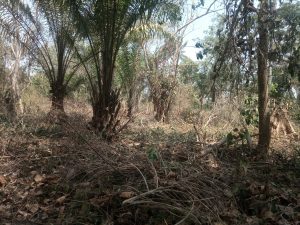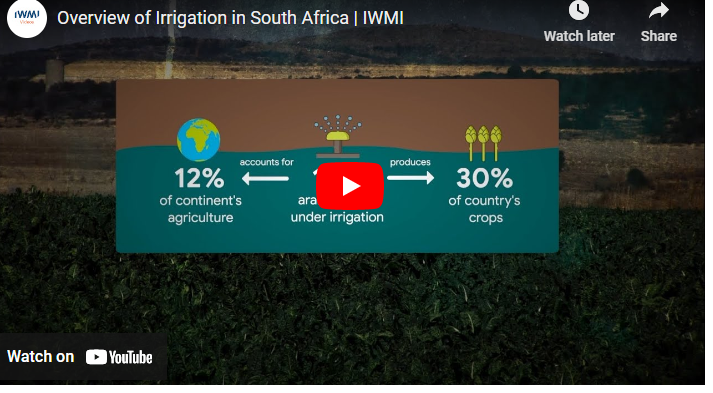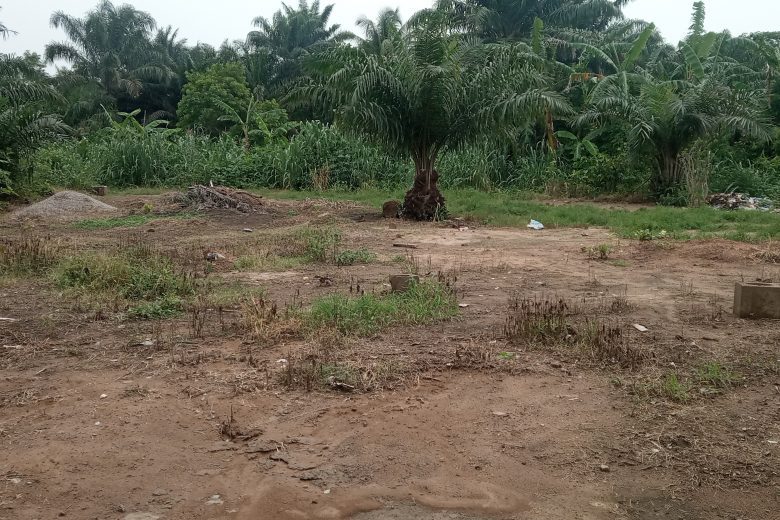Farming in Ghana- According to reports in late 2021 about 54% of Ghana’s Gdp was derived from agricultural products. This is a huge statistic that can be worked on to improve the Gdp and standard of living of Ghana citizens.
To start farming in Ghana, you will need to decide the type and size of farming you want to venture into, you have to procure farmland, clear it and start cultivating your desired crops.
So, we have prepared you a step-by-step guide to start farming in Ghana, and all you need to know.
How To Start Farming In Ghana Step By Step Guide
To start any agriculture in Ghana, here are the steps you need to take;
Step 1: Select farming type and size
In agricultural practices, there are different areas you can venture into, but these areas have been categorized into two which are crop farming and animal husbandry.
But we believe why you are here is crop cultivation. If you are to start crop cultivation, you will need to determine the size or scale you want to start this business.
Read Also: 15 Best Beans Fertilizer In Ghana [Organic & Inorganic]
You may choose to start in large-scale, small-scale, or backyard farming. It is this orientation that will aid you to have a clear insight of what to do, capital to make available, and many others.
Read Also: How To Start Farming Business In Nigeria [PDF Guide]
Step 2: Seek Information on your chosen area
You may need to seek further information on the common practices in your chosen area.
Take, for example, you plant to start a tomatoes farm or poultry, the agricultural practices that are good for these two fields are different, so it is advisable to take a step further to seek information on your desired farming type.
Read Also: How to Grow Irish Potatoes in Ghana [Practical Tips]
You can drop a comment in the comment section if there is any field you want us to help you out with. With have a group of experts who are into farming and they can recommend best practices for any area you have chosen.
Step 3: Procure your farmland
The next thing to do is buy farmland to start your farming career. The area of land you will be needing is dependent on the size of farming you want to set up.
You may be needing anything from one acre and above.
Read Also: How To Start Farming Business In South Africa {Beginners Guide}
Step 4: Clear the farmland

Your next assignment is to ensure all the trees, grasses, shrubs, and forests on your farmland are cleared. To do that, you may deploy the use of machines or the use of manual labor.
Read Also: [Beginners Guide] How To Start Cabbage Farming In Ghana
Your choice will be dependent on the size of the farmland, manual labor can handle between 1 acre and 3 acres quickly. But if you are buying or planning above 5 acres, it is advisable you deploy the use of a machine.
After clearing, set the bush on fire, this will help remove unnecessary shrubs and weeds, and ease your farming activities within the farm.
Step 5: Ensure you pray the cleared land with herbicides
This step is often time ignored by many farmers hoping the moment the land has been cleared, they can start their farming activities.
Read Also: How To Start Palm Farming In Ghana [Beginners Guide]
Why we recommended this is because, research has shown that farmland that is sprayed with herbicides is easy to manage, and easy to cultivate later, unlike unsprayed farmland which will grow weeds in the shortest time.
Step 6: Make Ridges/heap
Depending on the crop you want to plant, you may need not make ridges if you are planting cocoa, palm, cashew, mango, rice, and many others.
But if you are farming tomatoes, cassava, yam, beans, millets, groundnut, and so on, you may need to make ridges that will give these crops better support for their root system and aid better productivity.
Read Also: How To Start Sugarcane Farming In Nigeria [Step By Step Guide]
Step 7: Start planting
This is the stage you should start planting your desired crops. Ensure you buy the best breed of the crop you intend to farm. If you are in need of any seed, you can drop a comment in the comment section to help you out.
Step 8: Weed and maintain your farm
Most farmers plant their crops and leave the farm hoping to come back during harvest to harvest their crops. This is not the best practice if you indeed maximize profit.
You need to check your farm regularly, weed it, and spray chemicals against pests and diseases of your crops.
This will help you improve the yield of your crop.
Read Also: How To Start Cashew Farming Step By Step Guide
Overviews of Agriculture in Ghana
Ghana is one of the African continents that majors in Agricultural practices outside gold mining. From time immemorial, men have been living and sustaining on the produces from the farm which may be animal farming or plant cultivation.
Agriculture in Ghana is rapidly modernizing, in addition, new agricultural practices, such as green housing and organic farming, are being introduced. Ghana’s principal industrial crops include Cocoa, cotton, palm oil, rubber, tobacco, sugar cane, and kenaf.
However, they have no economic strategic significance. The government has not given industrial crops the same consideration as export crops, despite assertions that these crops could aid in local development efforts.
We will look briefly at Agriculture facts in Ghana
Facts And Figure Of Agricultural In Ghana 2022
- Do you know that Women make up about 39% of the farm workforce?
- Do you also know that Agriculture is responsible for 54 percent of Ghana’s GDP, more than 40 percent of export profits, and more than 90 percent of the country’s food requirements?
- Do you know Ghana is the second-largest producer of cocoa in the whole of Africa? With about 800,000 tons yearly and Cote d’Ivoire coming first with about 2.2m tons yearly.
- Major crops planted in Ghana are Cocoa, Palm, maize, rice, millet, etc.
Read Also: How To Start Profitable Poultry Farm In South Africa [Step By Step Guide]
Top 5 Importance Of Farming In Ghana
Here are the importance or advantages of agriculture in Ghana;
1. Boost Ghana’s Gdp:
The highest contributor to Ghana’s Gdp is farming. This account for about 54% of the total Gdp of the nation.
What these invariable means is that for the most money that is being spent and in circulation in Ghana, agricultural practices are the highest contributor.
2. Help produces food for local consumption:
Without food, no nation can survive, Ghana’s economy thrives well because agricultural activities help supply food that is needed for consumption locally.
3. Help Reduce unemployment:
Farming in Ghana has helped reduce the unemployment rate and help curb social vices that able hands can lay their hands on.
4. Boost International Presence:
Ghana in the whole of Africa is known to be the second-largest cocoa-producing country. This is a signal that in the whole economy table, Ghana cannot do away without owing to their cocoa production and other agricultural products.
5. Supply Agro-allied industries with raw materials:
Do you know that most agro-allied companies on the coast of Africa rely on some agricultural raw materials from Ghana? This is because Ghanaians have held agriculture and farming with a good hand.
What Are The Problems Facing Agriculture In Ghana?
Following are the major challenges farmers are facing in terms of agriculture in Ghana;
Lack of funds:
This is a common saying, but the truth is that most farmers who are passionate about farming in Africa do not have enough capital to venture into farming on large scale.
Lack of storage Facilities:
Most produces from farms most time got spoilt before getting to their final destination owing to the lack of proper storage facilities.
Bad road networks in rural areas:
Most rural areas where agriculture/farming is practiced on a large scale lack a good road network. This deters farmers from transporting their harvested materials to their final consumers.
Lack of Government support:
Most governments in Africa claimed to have established one scheme or the other for agriculture, but the truth of the matter is, that most of these schemes did not get to their final consumers which are the farmers.
The items and loans are majorly given to people who are not into agriculture, some government officials will siphon the fund while some will ask farmers to pay huge amounts of money before accessing these benefits.
Solution To Agricultural Challenges In Ghana
- Government should build a good road network in rural areas to connect the major farms and urban areas.
- Government should establish a storage facility for every crop in major farm settlements.
- Government should reduce the bottleneck principles placed on most grants and agricultural loans.
What Is Ghana’s Main Cash Crop?
Ghana’s main cash crop is Cocoa
Is Farming Profitable In Ghana?
Yes, one of the most profitable businesses started in Ghana is the farming business.
What type of farming is most profitable in Ghana?
The most profitable farming business in cocoa farming.
How do I register my farm in Ghana?
To register your farm, you need to submit information about your farm to the office of the Registrar at the Agricultural Development project office.
What crops grow well in Ghana?
Following are crops that grow well in Ghana: Cocoa, Palm, Millet, Maize, Rice, etc.
What vegetables grow in Ghana?
Following are vegetables that grow well in Ghana: okra, eggplant (garden eggs), carrots, tomato, onion, and cabbage.
Conclusion
Starting agricultural farming in Ghana is one of the easiest but time is taken professions you can engage in. So, we have listed all you need to do to get started with your farm, we wish you good luck!




GOOD MORNING SIR, PLS MY NAME IS APPIAH. I AM INTERESTED IN THE CABBAGE FARMING BUSINESS BUT I HAVE NO EXPERT IDEAS AS TO HOW TO GO ABOUT THINGS.I’D BE GLAD IF YOU COULD BE OF HELP. THANKS
Off course, I will be glad to be of help in course of your farming career, you may come to this blog to ask questions, and we will be glad to offer our farming tips.
In the meantime, I have published a content on how you can start cabbage farming in Ghana, here is a link to read on that Read Here/.
Hello Sir
I am a young man hoping to investing in Potato business/Farming.Please can you take me through the appropriate site/area and the process throughout the farming process
Thank you for your comments.
Here is a link to know how to grow Irish potatos https://agrolearner.com/how-to-grow-irish-potatoes-in-ghana/
https://agrolearner.com/how-to-grow-potatoes/
Here is a link to the best fertilizers to use for your sweet potato farm
https://agrolearner.com/best-fertilizer-for-sweet-potatoes/
Here is a link to learn about how to preserve your sweet potato
https://agrolearner.com/how-to-process-potatoes-flour/